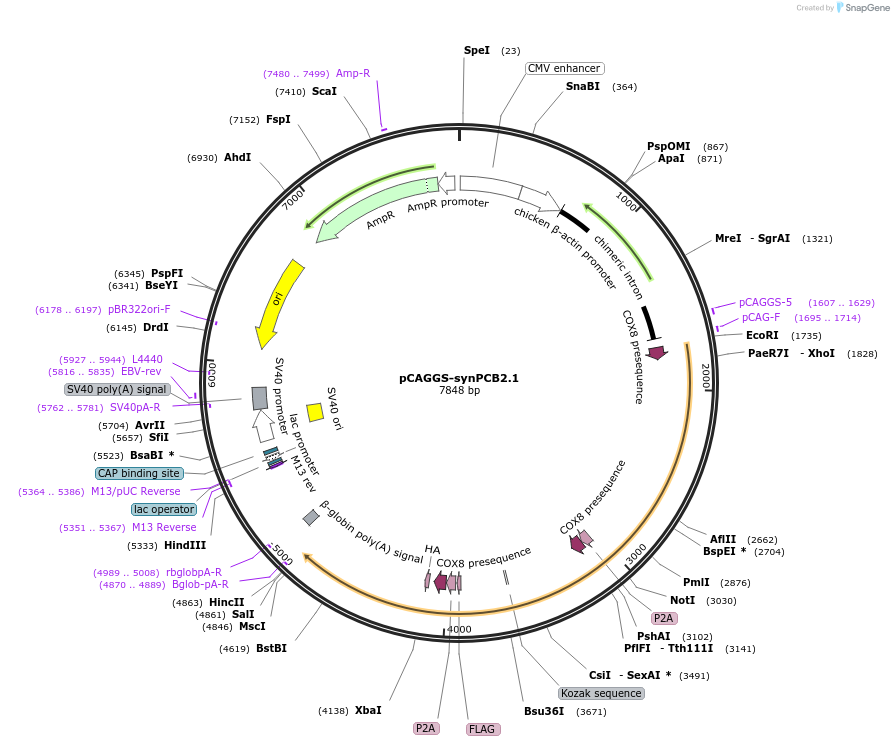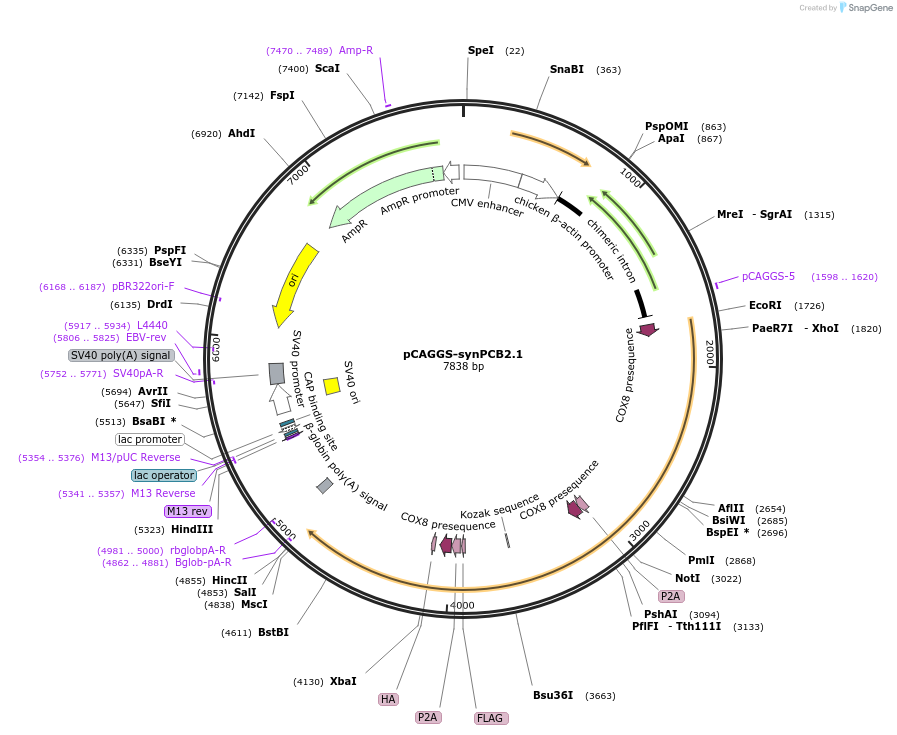-
PurposeExpression vector for phycocyanobilin (PCB) synthesis in mammalian cells.
-
Depositing Lab
-
Sequence Information
Ordering
| Item | Catalog # | Description | Quantity | Price (USD) | |
|---|---|---|---|---|---|
| Plasmid | 139478 | Standard format: Plasmid sent in bacteria as agar stab | 1 | $89 | |
Backbone
-
Vector backbonepCAGGS
-
Backbone manufacturerJunichi Miyazaki (Osaka University, Japan)
- Backbone size w/o insert (bp) 4870
- Total vector size (bp) 7838
-
Vector typeMammalian Expression
Growth in Bacteria
-
Bacterial Resistance(s)Ampicillin, 100 μg/mL
-
Growth Temperature37°C
-
Growth Strain(s)DH5alpha
-
Copy numberHigh Copy
Gene/Insert
-
Gene/Insert nameMTS-Fnr-Fd-P2A-MTS-PcyA-FLAG-P2A-MTS-HA-HO1
-
Alt namesynPCB2.1
-
SpeciesSynthetic; Thermosynechococcus elongatus bp-1
-
Insert Size (bp)3117
- Promoter CAG promoter
Cloning Information
- Cloning method Restriction Enzyme
- 5′ cloning site EcoRI (not destroyed)
- 3′ cloning site SalI (not destroyed)
- 5′ sequencing primer catgttcatgccttcttctttttcc
- 3′ sequencing primer agatgctcaaggggcttcatgatg
- (Common Sequencing Primers)
Terms and Licenses
-
Academic/Nonprofit Terms
-
Industry Terms
- Not Available to Industry
Trademarks:
- Zeocin® is an InvivoGen trademark.
These plasmids were created by your colleagues. Please acknowledge the Principal Investigator, cite the article in which the plasmids were described, and include Addgene in the Materials and Methods of your future publications.
-
For your Materials & Methods section:
pCAGGS-synPCB2.1 was a gift from Kazuhiro Aoki (Addgene plasmid # 139478 ; http://n2t.net/addgene:139478 ; RRID:Addgene_139478) -
For your References section:
Improvement of Phycocyanobilin Synthesis for Genetically Encoded Phytochrome-Based Optogenetics. Uda Y, Miura H, Goto Y, Yamamoto K, Mii Y, Kondo Y, Takada S, Aoki K. ACS Chem Biol. 2020 Nov 20;15(11):2896-2906. doi: 10.1021/acschembio.0c00477. Epub 2020 Nov 9. 10.1021/acschembio.0c00477 PubMed 33164485




